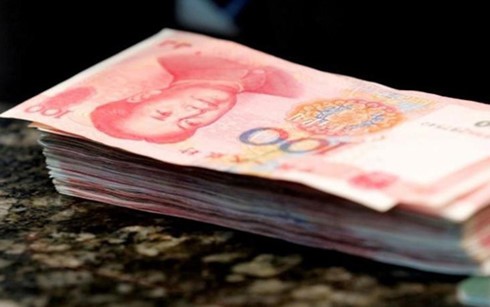(VOVworld) – The International Monetary Fund (IMF) has officially added the Chinese currency, the renminbi, to the organization’s Special Drawing Right (SDR) basket. This move acknowledges China’s important role in the world economy and a step to enable the currency to be transacted more freely, increasing its competition with the greenback. However, the IMF’s move pressures China to be more transparent in its economic and foreign exchange policies.
 |
| (Photo: Reuters) |
As from October 1st, the renminbi joins the basket of the Special Drawing Right together with the US dollar, the euro, the Japanese yen and the British pound.
Speaking in Washington, Managing Director of the IMF Christine Lagarde said the renminbi’s inclusion is an important step in the integration of Chinese economy into the global financial and monetary system and it reflects the progress made in reforming China's monetary, foreign exchange, and financial systems.
China has made remarkable efforts, including devaluating the renminbi in August 2015, surprising the world. Since then, the value of the renminbi has been adjusted to the record low in 6 years. So far this year, the Chinese currency has been devalued 2.8% against the US dollar.
As the IMF announced its decision to include the renminbi into the SDR basket in 2015, the global financial market is predicted not to be fluctuated in the near future. According to Capital Economics, the global demands for renminbi assets will not surge rapidly. But the world public will pay more attention to China’s economic and foreign exchange policies when some central banks use the renminbi in their official reserve.
Analysts say the renminbi’s inclusion is only symbolic and that this currency fails to meet to criteria for IMF reserve currencies such as being used widely in trade transactions or in global financial markets. US Secretary of the Treasury Jack Lew said this week that the Chinese currency is far from becoming a reserve currency of the world. He added that the IMF’s recognition of the reminbi’s new role actually marks a big change in China over the past 10 years, but Beijing has a lot to do to make its economy a truly market economy.
The role of the reminbi remains limited. The Bank for International Settlements (BIS) said only 4% of the global trade is transacted with the Chinese currency, in comparison with 88% for the US dollar and 22% for the Japanese yen. China is set to make drastic moves to make the reminbi a truly one of the 5 strongest currencies in global trade.